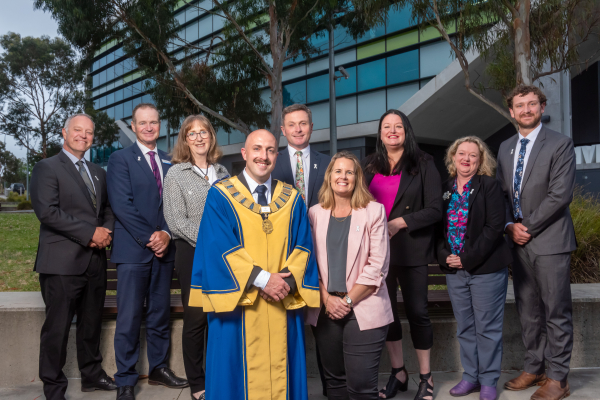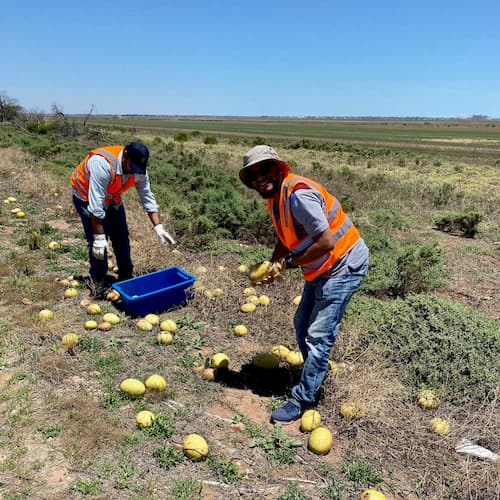Photo: Michael Orr, Environmental Technician with the Department of Planning and Environment.
An interactive museum and family fun day was held on Saturday 10 December to celebrate MidCoast Council’s release of its annual Waterway and Catchment Report Card.
Water sampling is undertaken every summer across the MidCoast region’s six major catchments. The results improve our understanding of their overall health. It also helps us understand patterns, trends and cycles of our waterways.
In 2022, estuaries were impacted by the large amounts of rain during the summer sampling period.
Of the sites sampled, nine maintained their grade from 2021. Five locations dropped a grade and only three improved their grade.
“We’re continuing to see Report Card grades being influenced by the amount of runoff from the catchment. The wetter than average sampling period resulted in a decrease in water clarity and increased algal growth,” said Dr Rebecca Swanson from the Department of Planning and Environment.
“La Nina was in effect during the 2021-22 summer and the large amount of rain increased sediments and nutrients. However, the majority of our systems maintained their grade. This shows the resilience of the estuaries and their ability to cope with extreme conditions,” Dr Swanson said.
The Report Card results also help us measure the success of many water quality projects undertaken by Council, the community and delivery partners.
“These results are a reminder of the importance of setting strategic priorities for our waterways. Managing our waterways helps to protect their environmental, social, cultural and economic values for the future,” said Council’s Water Quality and Estuary Coordinator, Prue Tucker
“We have been working with our community to develop a 10-year action program to protect the health of the Manning River. The program takes a holistic approach. It recognises that what happens upstream impacts the estuary. Its primary focus is addressing the impacts of land-use on water quality and ecosystem health,” said Mrs Tucker.
A similar program is now being developed for the MidCoast southern estuaries.
To see the full results and find out more about the project visit
The Report Card is funded by MidCoast Council’s Environmental Rate and supported by the New South Wales Government through its Coast and Estuary Program and the Department of Planning and Environment.







